CSRL Nutrition Education Center
The ISU Center for Sustainable Rural Livelihoods invites you to share in changing the lives of mothers, children and infants in rural Uganda by supporting the start-up of a new Nutrition Education Center to be managed through the Iowa State University-Uganda Program in Kamuli District, Uganda. Your contributions will help:
-
Save the lives of malnourished infants, children and mothers (see #1)
-
Purchase construction materials for an accessible village meeting site for mothers and their children to collectively and safely gather (see #2)
-
Improve food safety and sanitation by constructing a kitchen and latrine (see #3)
-
Provide ingredients for nutrient dense porridge as a first step to reversing malnutrition
-
Fund training program supplies for mothers to prepare the porridge and grow gardens
The ISU-UP has seen remarkable success in the recovery process of malnourished families in the past five years through its existing Nutrition Education Centers. Because of this success, mothers are now traveling (mostly by foot) very long distances to an existing Center to save the lives of their children. Another Center is needed to serve the mothers who are disadvantaged and at risk because of the distance from their homes to an existing Center.
*Every dollar you contribute will be matched by three other donors, which means every $1 donated will total $4.
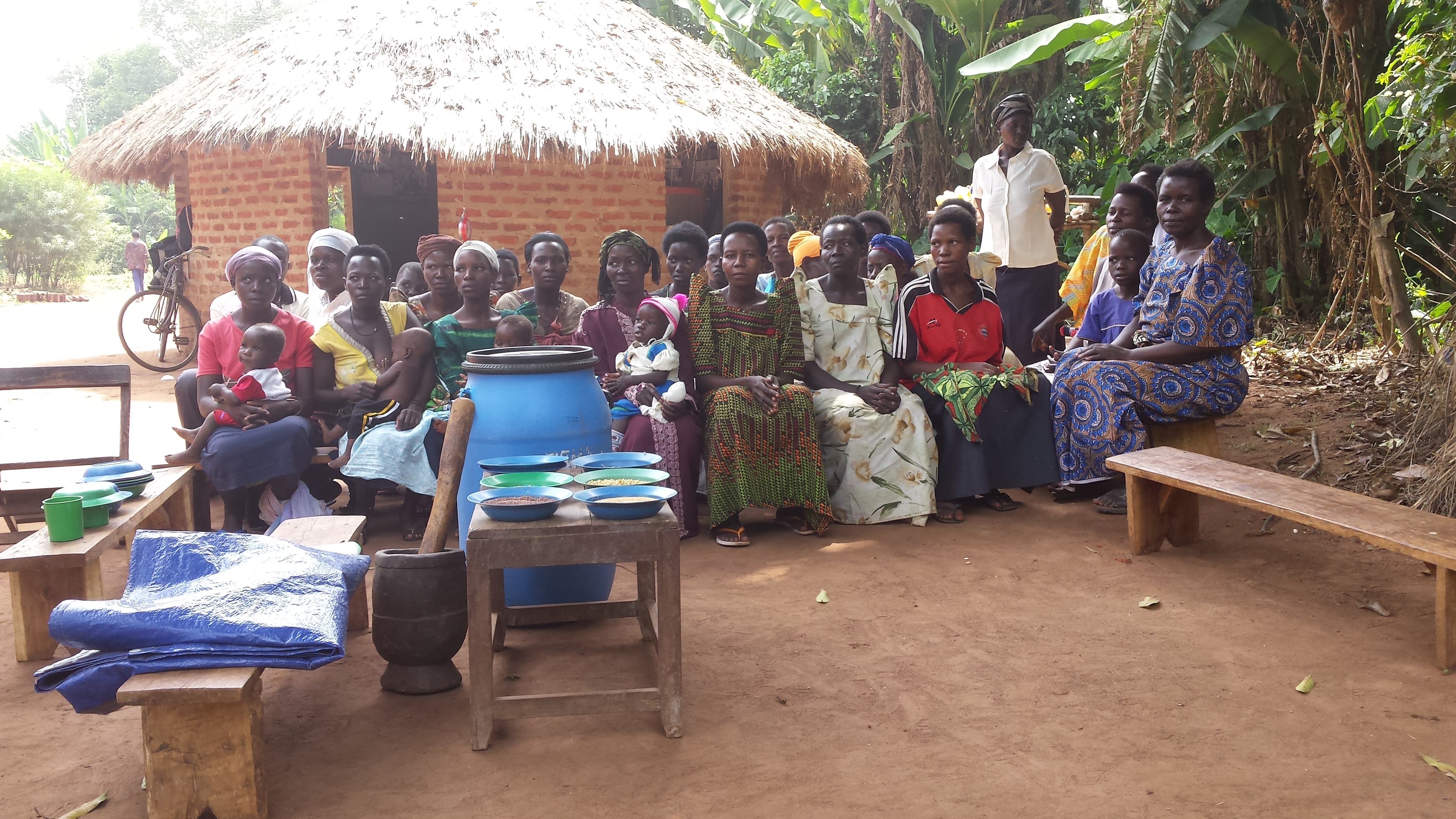
- Nutrition Education Center Overview: ISU-UP’s Nutrition Education Program utilizes Nutrition Education Centers (NECs) to provide a supplementary meal for malnourished children and education for their mothers and caregivers. This is done in order to sustain the nutrition related gains obtained at the NECs and ensure sustainability of the feeding and care once the child is discharged from the program. A Nutrition Education Center is established at a home of a community member who volunteers his/her home to be used as a center.
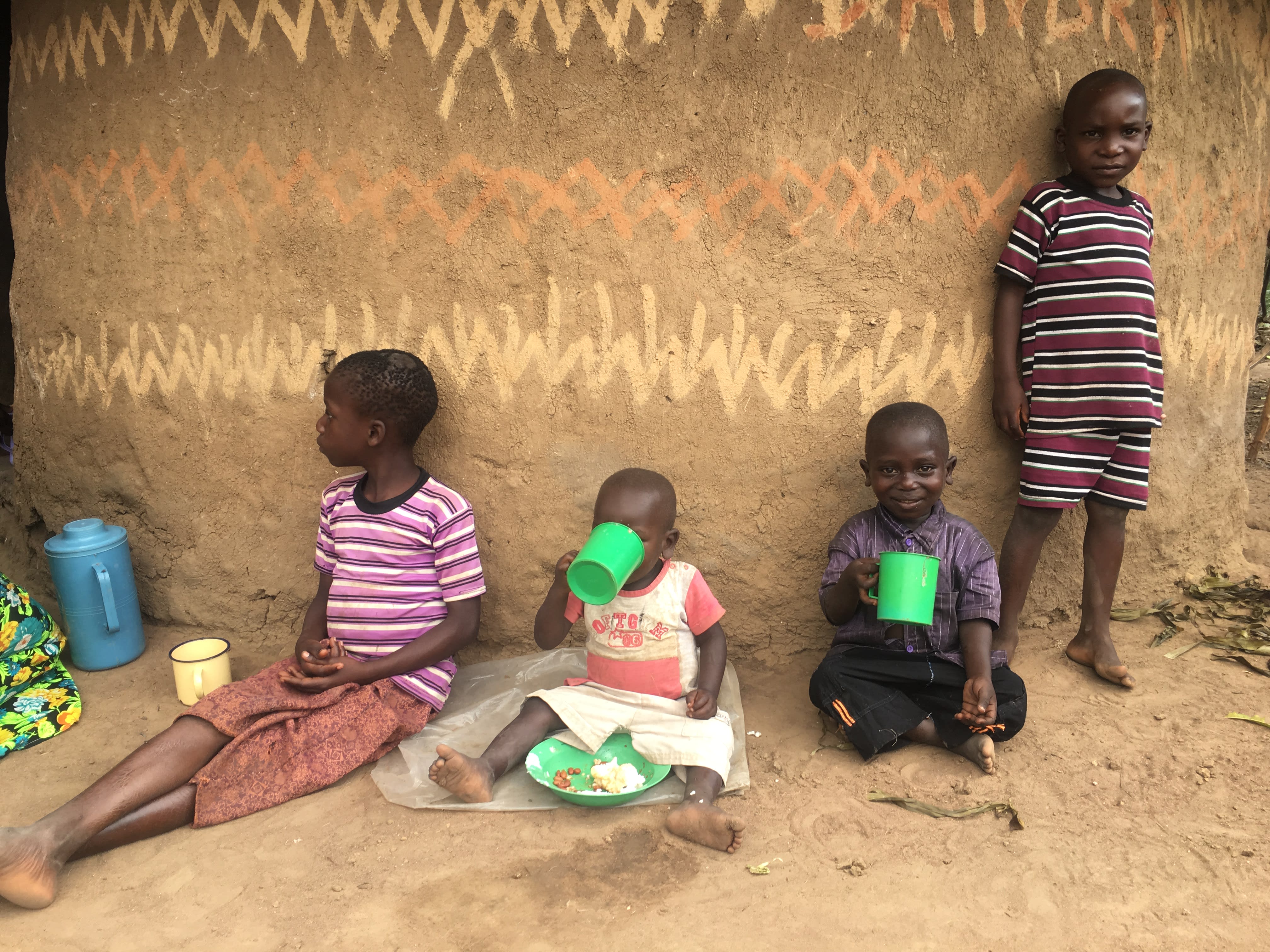
- Proper Facility: Without a proper facility for the Nutrition Education Center, mothers are exposed to the harsh African weather, which could be the extreme heat associated with being near the equator or the tropical rains. Kamuli temperatures regularly exceed 95F and rains average 54 inches per year. A modest gazebo is required to provide shelter during feeding, meeting or training. Imagine hosting 50 to 100 people at your home five days each week without providing shelter from the harsh temperatures and pouring rains!
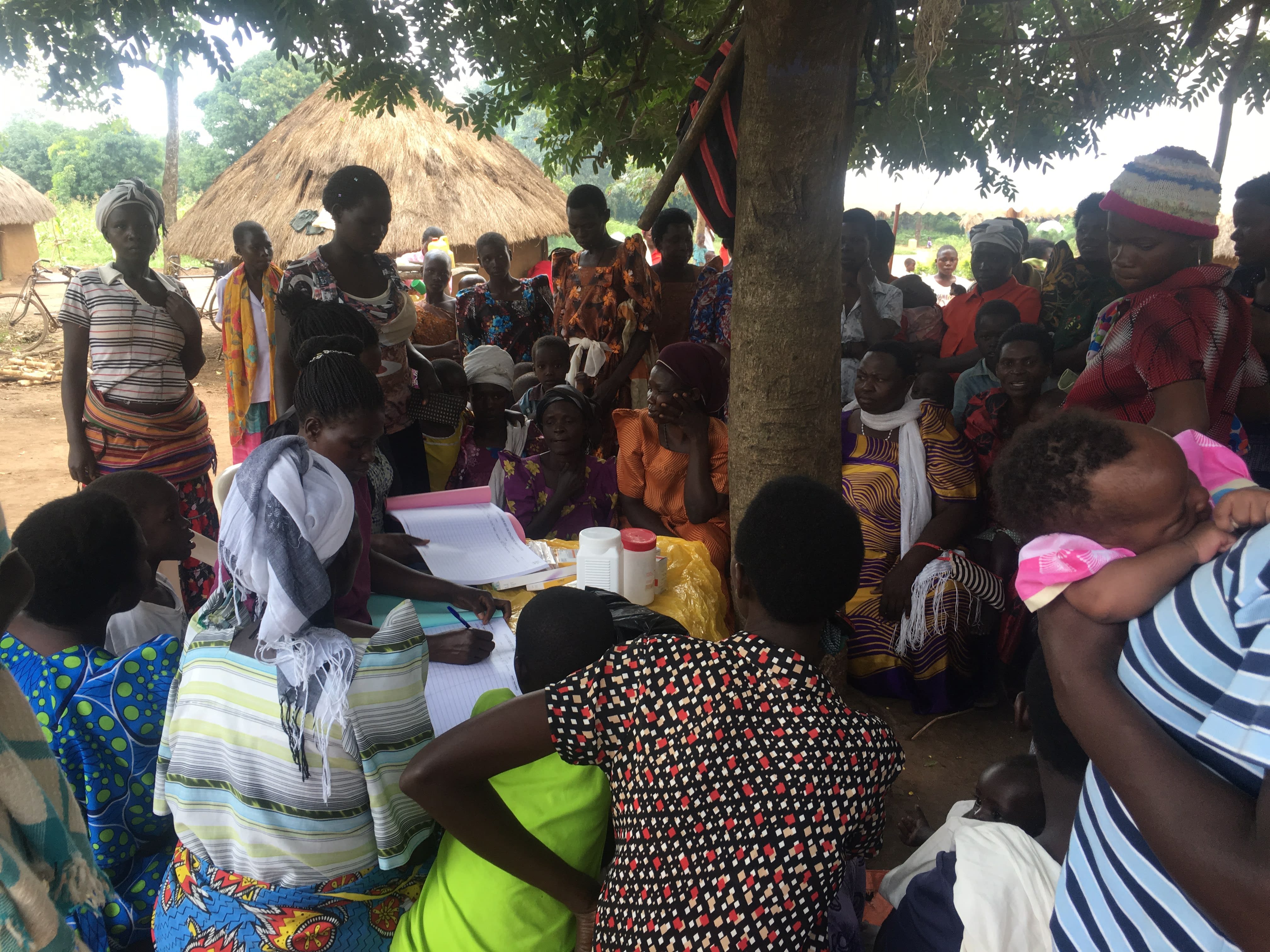
- Food safety and sanitation: Food and nutrition security includes food, health and care. To prepare the porridge, a clean kitchen is required. Most of the time cooking at the NEC is done in the open or in old or dilapidated structures where it is hard to maintain sanitary conditions for the food being cooked thus compromising food safety. An improved kitchen is one of the facilities ISU-UP provides to the NECs in order to ensure food safety during porridge preparation and consumption.
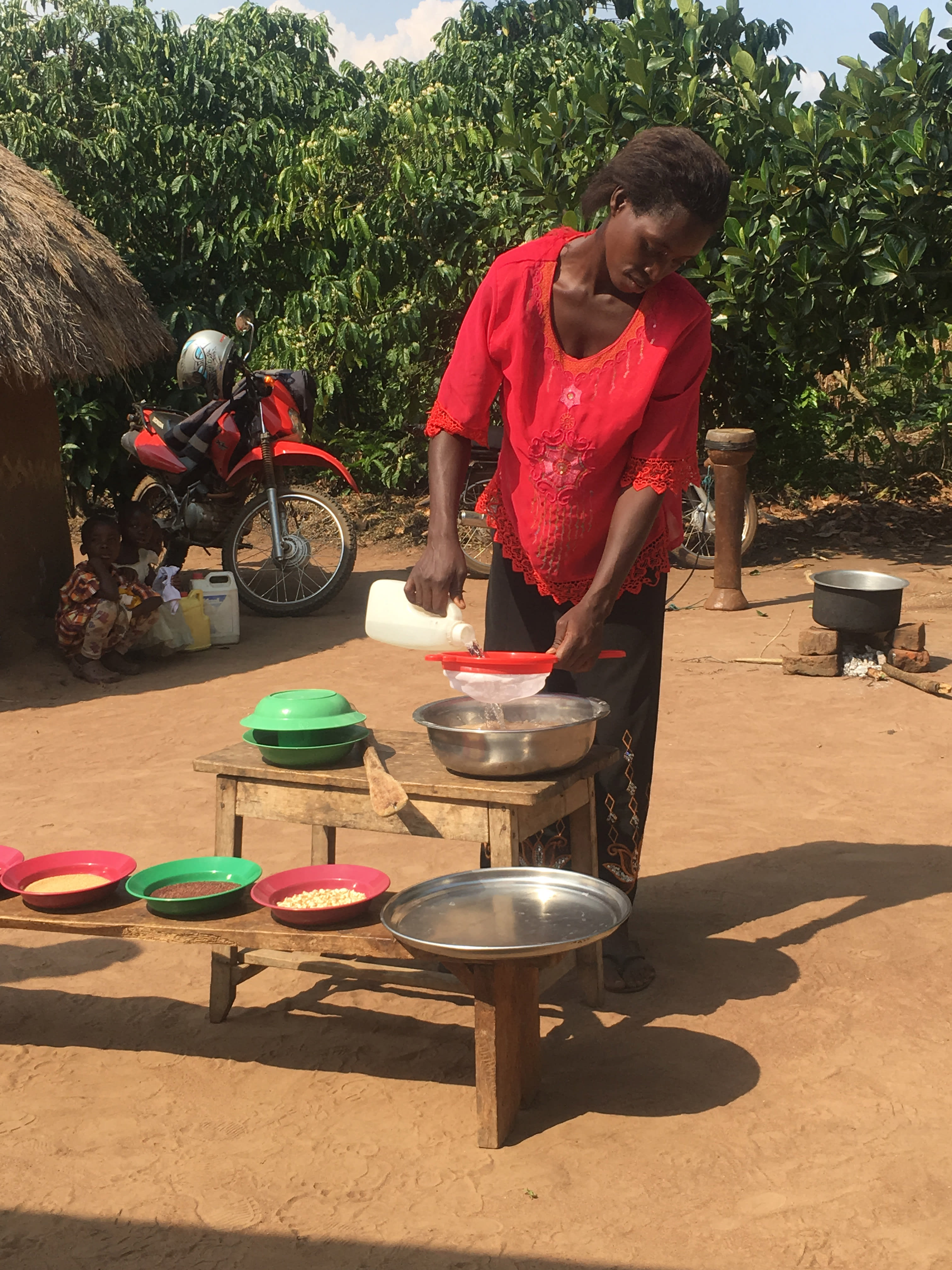
- Nutrition and education: The NECs provide for the proper nutrition for children, from birth to age five, and pregnant and breastfeeding women. Administering supplemental nutrition and related training, the NECs literally save lives while preparing women to maintain their families improved health indefinitely. A healthy child will contribute to development of their community into the future.
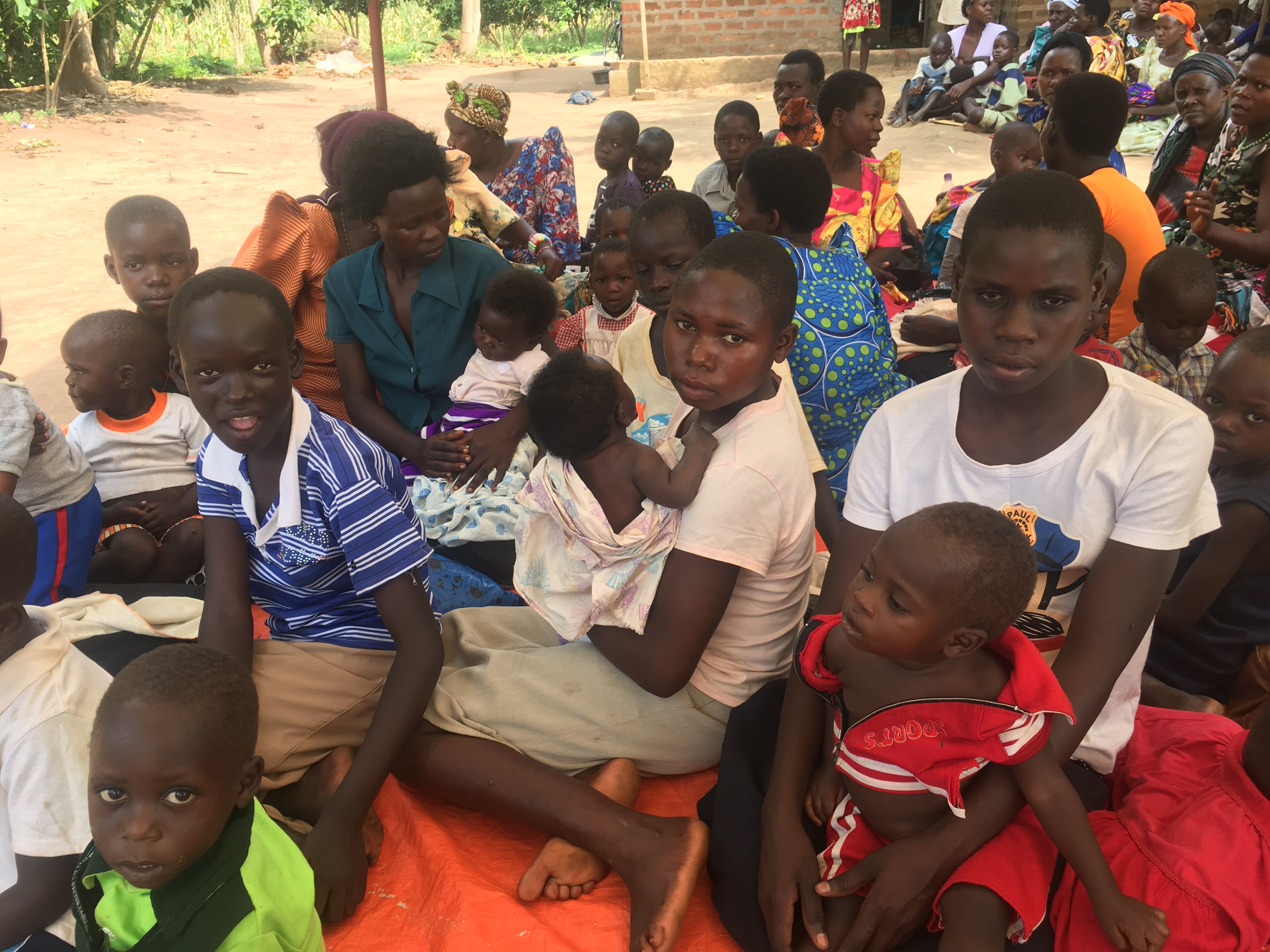
$10
Recipe for Self-Reliance
ISU Nutrition Education Centers (NECs) revolve around a seemingly simple star; porridge. But this isn’t just any porridge. Made from a mixture of millet, soya beans, amaranth, maize, silverfish, sugar, milk, and water, this porridge provides around 1,000 nutrient-dense calories per client each day! Clients who attend the NEC’s are not only provided with prepared porridge, but they also learn how to make their own and better feed their families.
$25
You "Can" Make an Impact
Jerry cans are ubiquitous to Uganda as well as many other African countries. They are used to store and transport just about any kind of liquid. In the case of the ISU Nutrition Education Centers, they are utilized for fetching water and milk as well as modified to create tip-taps (hand washing stations).
$50
Power of Protection
It takes the involvement of many individuals and organizations working in tandem in a wide variety of ways to solve big issues like mother and infant nutrition. The ISU-UP Nutrition Education Centers partner with Kamuli district health services to expand the reach of vital services. These include immunizations and well as general health education and training.
$100
Serving up Hope
One of the primary benefits of ISU-UP’s Nutrition Education Centers is that they are set up in locations where the need is greatest. Members of the community step up to host these centers at their homes. Imagine hosting 50 to 100 people at your home for lunch five days each week! Sanitary plates, cups, spoons, etc. ensure that everyone receives a sanitary serving of nutritious porridge.
$250
Seeds for Sustainability
Not only will mothers and infants who attend the Nutrition Education Center receive vital nourishment, but they also receive training on how to grow their own porridge ingredients. Seeds and seedlings are provided for planting nourishing vegetables. After a successful harvest, mothers collect seeds for their next planting and a return a portion the seeds to the program to be given to the next mother in need.
$500
Growing a Future
The progress of mothers and children who attend Nutrition Education Centers is measurable. The height and weight of babies, children, and mothers are monitored monthly. Healthy babies have the opportunity to develop into productive adults. Investing in children’s health is an investment into the future of the community.
$1,000
A Clean Start
Malnutrition cannot be stopped with food alone. One-third of the world's population lacks access to a decent toilet and another 844 million are without clean water. Conditions like these are ripe for the spread of diarrheal diseases. Even a full belly cannot protect from malnutrition, if your body can't absorb the nutrients it's given. What they lack in glamour, they make up for in importance. Vital components of CSRL's Nutrition Education Centers in Uganda are well functioning latrines and hand washing stations. Your donation will give newborns in Kamuli a clean start.

